Antony BLINKEN
Traveling across Africa, U.S. Secretary of State Antony Blinken saw firsthand the limits of America’s influence abroad.
Blinken confronted authoritarianism, growing threats from newly energized extremists, and persistent challenges posed by COVID-19 and climate change, all of which have stubbornly resisted various U.S. interventions.
And, nowhere on his three-nation tour last week — to Kenya, Nigeria and Senegal — was he able to escape obvious signs of the intense competition between the U.S. and China: a geopolitical power struggle that has been playing out largely in China’s favor for the past two decades, especially in Africa.
Before leaving the continent at his last stop in Senegal, Blinken said he had been well received by all three leaders he met. But, he allowed that “we have to be judged on what we do, not simply on what I say.”
The limits of Washington's reach have been evident for some time but have been highlighted in recent months as President Joe Biden has promoted an “America is back” narrative, intended to signal a U.S. return to the international arena and institutions that his predecessor had eschewed.
In Nairobi, much of the secretary’s visit and drives through the Kenyan capital took place in the shadow of or literally underneath a massive, Chinese-financed elevated expressway construction project.
In Abuja, Blinken's motorcade from the airport passed the giant and unmissable headquarters building of the Chinese Chamber of Commerce in Nigeria, where a top official spoke only partially in jest of playing the U.S. and China off of each other and China's attractiveness as a partner.
And, in Senegal, the capital, Dakar, was gearing up to host a major China-Africa trade and investment event less than 10 days after Blinken's departure on Saturday.
While the Biden administration’s efforts to help African nations combat the coronavirus pandemic and encourage climate-friendly policies appear to be making some initial progress, the broader picture is less encouraging.
**No appetite for great power competition **
Yet China was never far from the top of the agenda.
“Our engagement in Africa, with Africa, is not about China or any other third party,” Blinken said in Nigeria. “It’s about Africa."
“Our purpose is not to make our partners choose, it is to give them choices,” he said in Senegal. "And when people have choices, they usually make the right one.”
Senegalese Foreign Minister Aissata Tall Sall, who will co-host the Nov. 29-30 Forum on China-Africa Cooperation with her Chinese counterpart, nodded approvingly at Blinken's remark.
"We have a diplomacy of sovereignty from which we do not exclude anyone," she said. “There is not only one choice. We have many choices.”
And, as Nigerian Foreign Minister Geoffrey Onyeama pointed out, his country and others want the best deals they can get, and often that means looking to China.
“We saw a great opportunity with the Chinese,” he said of several major infrastructure projects now underway in Nigeria. “I mean, they’re used to a lot of these huge capital projects and infrastructure projects. We would have gone with anybody else that was providing something at a competitive rate for us, but in many areas they were.
“It’s not a question of one country or the other per se; it’s really a question of the best deal that we can strike,” he said, comparing Nigeria to a woman being wooed by various suitors.




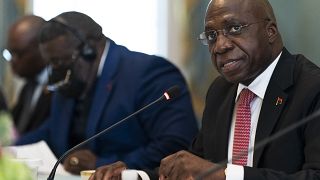

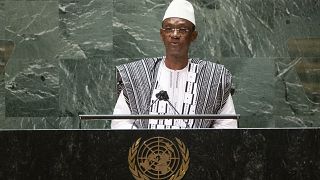
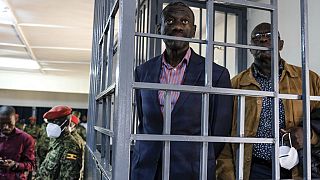
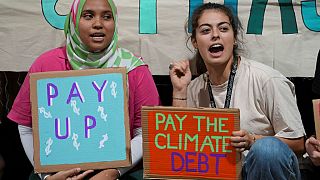
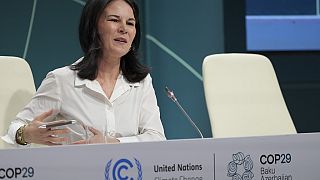

01:17
Senegal: Ousmane Sonko’s Pastef party secures historic election victory
01:37
Record participation at 24th Sofi Great Ethiopian Run
Go to video
Six arrested over break-in at Lumumba’s Mausoleum
01:16
Kenya investigates alleged abduction in Nairobi of Uganda opposition figure
00:10
Provisional results confirm victory for Senegal's ruling Pastef party
Go to video
Ghana overtakes Nigeria in U.S. visa overstay rates, new report reveals